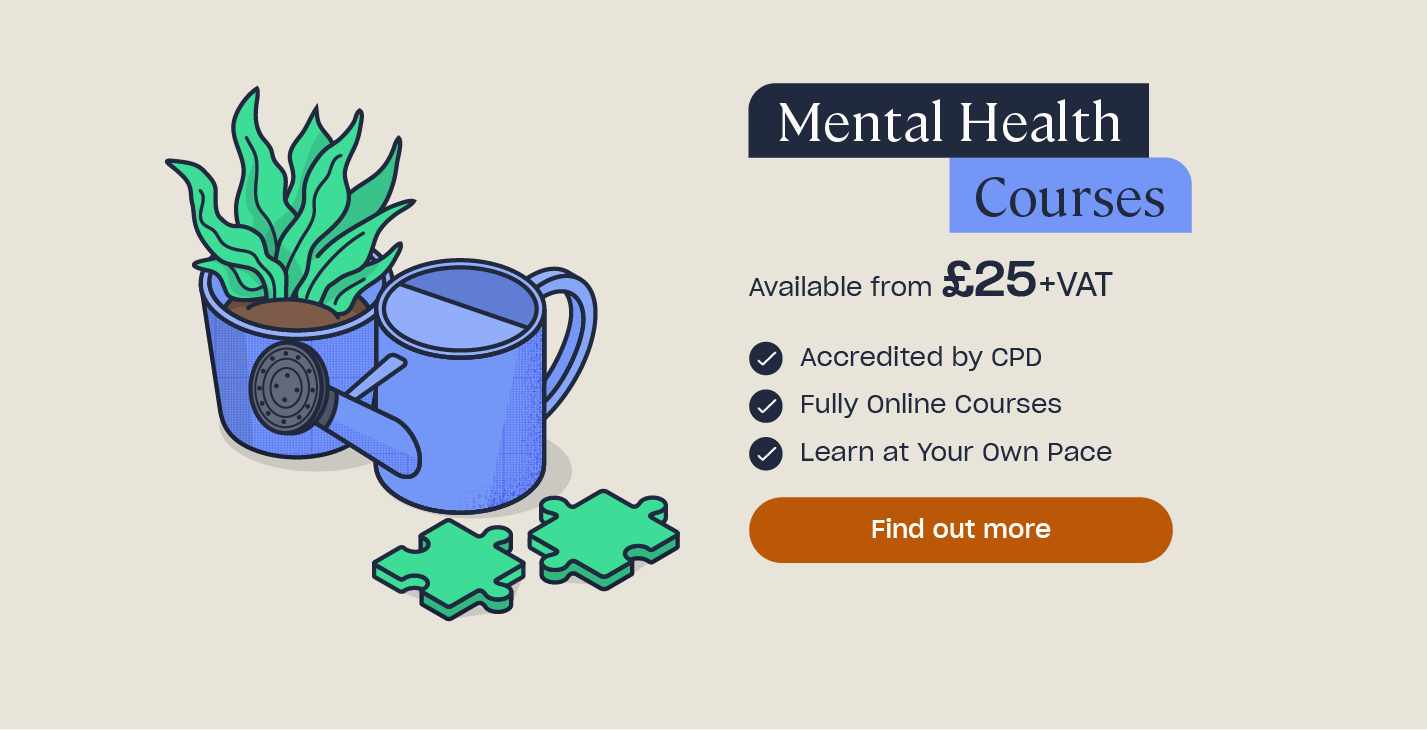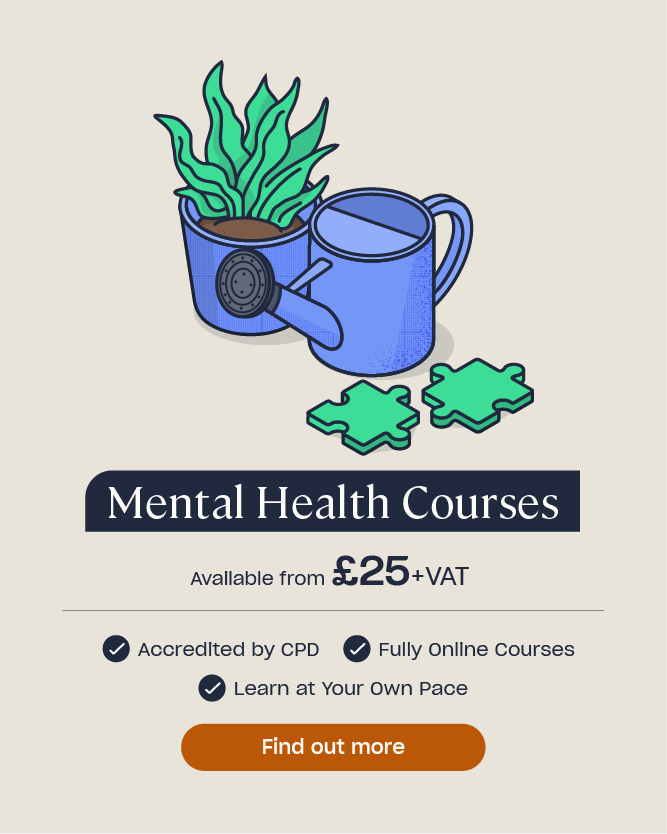Stress Management Activities to Try at Home
Stress is the body’s reaction to pressure or feeling threatened. It is very common and can help people to work hard and achieve their goals. However, too much stress can have a negative impact on your physical, emotional and mental health.
Everyone will experience stress at some point during their life and while you cannot always control the circumstances surrounding the cause of the stress, you can control how you respond. Therefore, recognising when you are stressed and managing it effectively is crucial. This article will outline some common causes of stress and explain why stress management is so important. It will also include guidance on stress management activities that you can practice at home.
What are the Sources of Stress?
Stress is a normal part of life, and everyone will experience it at some point. There are many causes of stress and they will be different for everyone. For example, something that causes you stress, may not cause stress for your friend. Similarly, people can cope with different amounts of stress, you might feel stressed because of something big, or it might be a build-up of lots of small things.
Some common sources of stress include:
- Feeling under lots of pressure.
- Facing big changes in your life.
- Being worried about something or someone.
- Not having control over the outcome of a situation.
- Having overwhelming responsibilities.
- Not having enough work or having too much work.
- Experiencing discrimination, hate or abuse.
- Going through a period of uncertainty.
Stress can stem from a variety of situations, such as personal issues, family and friends, employment issues, studying, housing and money. Even events that are meant to be happy can cause stress, for example, getting married or starting a family. Understanding the causes of stress can help you to recognise when you need to take action and utilise stress management activities.
The cause of your stress could be something you’re aware of, but given the importance of keeping stress in check in order to mitigate the effects it can have on your physical and mental health, it is worth noting if any other factors could be involved.
Why is Stress Management Important?
Stress management involves recognising when you are stressed and responding appropriately. This is crucial as preventing and managing long-term stress can lower your risk for other conditions such as heart disease, obesity, high blood pressure and depression.
When you are in a stressful situation, your body naturally responds with a reaction called ‘fight or flight’. This reaction involves your nervous system releasing hormones that prepare you to fight, or leave (flight). This is why you may notice your heart rate increasing, your breathing getting faster, sweating and your muscles tensing when you are in a stressful situation. This type of stress is short-term and necessary for certain situations, however prolonged periods of stress can have a negative impact on your overall health.
Long-term stress can also lead to mental health problems, such as depression and anxiety, and can worsen existing mental health issues. Therefore, managing your stress is vital.
Looking to Learn More?
Our Stress Awareness Training Course will teach you a range of strategies to help you better cope with stress. Additionally, our Mental Health Awareness Training Course will increase your understanding of common mental health issues and how you can support yourself, or others, when struggling.
Identifying your Stress
Identifying what is causing your stress is one of the most important parts of stress management. It can help you tackle the root of the issue, which, in turn, will help you to reduce your stress.
Sometimes, you may not be aware that you are stressed. Therefore, awareness of the different physical, emotional and behavioural signs of stress will help you to recognise your own indicators.
– Irritable.
– Angry.
– Impatient.
– Overwhelmed.
– Anxious.
– Nervous.
– Unable to enjoy yourself.
– Depressed.
– Uninterested in life.
– Like you’ve lost your sense of humour.
– A sense of dread.
– Worried.
– Lonely.
– Suicidal.
– Difficulty breathing.
– Panic attacks.
– Problems with sleep.
– Muscle aches.
– Headaches.
– Chest pains.
– High blood pressure.
– Indigestion or heartburn.
– Feeling dizzy, sick or fainting.
– Constipation or diarrhoea.
– Weight gain or weight loss.
– Sweating.
– Existing health problems getting worse.
– Struggling to make decisions.
– Being unable to concentrate.
– Memory problems.
– Biting your nails.
– Grinding your teeth.
– Overeating or undereating.
– Smoking or using recreational drugs.
– Being restless.
– Crying.
– Withdrawing from family and friends.
To help you identify when you are stressed and the causes of your stress, try keeping a diary. Each day, record in the diary; what you have done in the day, where you were, who you were with, how you were feeling, what you were thinking, what you started doing and rate your stress on a scale from 0-10.
If you keep a diary every day, over time you may notice a pattern and be able to identify what triggers your stress or when you feel the most stressed. You can use this to then help you manage your stress.

Stress Management Activities
Once you can identify when you are stressed, you can find ways to manage it. Remember that you can not always identify when you are, or are becoming, stressed, so engaging in the following activities regularly can help you as a precautionary measure.
If you can, try all of the following activities so you can find which is the most effective for you. As we have mentioned, stress is very subjective, so an activity that is helpful for your friend may not work for you and vice versa. Therefore, trying as many of the activities as you can gives you a better chance of finding the right stress management technique for you.
Activities to Cure the Sources of Stress
Making a few changes to your home environment can help to reduce the likelihood of stress occurring. For example:
- Prepare your meals in advance so that you don’t have to cook every night. Make use of your freezer for batch-cooking.
- Set a routine for your children. Ensure they eat, bath and go to bed at the same time every day so that you can arrange other things around them. This will help to prevent you from running out of time.
- Set a routine for yourself to keep track of everything that you have to do.
- Make time in your schedule to relax, have a bath or do something else that you enjoy. Relaxation is the key to eliminating stress.
- Tidy up your house; an organised home is much less stressful than a messy one.
- Keep a calendar or to-do list handy and every time you come across something extra, write it down. This will stop you forgetting things, you can physically see what you need to do and when and it will give you the satisfaction of crossing things off as they are completed.
Activities to Help Manage Stress
Relax Your Muscles
When you’re stressed, your muscles contract and become tense, leading to neck pain, headaches, back ache and cramps. It is therefore essential that you learn to relax and release tension.
Try this quick activity to help relax your muscles:
- Find somewhere you can sit or lay down comfortably and without distraction.
- Scan your body for muscle tension. Start at your head and move down to your toes.
- Practice relaxing each part of your body that you have identified as being tense.
- Alternatively, tense each part of your body for a few seconds and then relax it. As you let the tension go you will notice the sensations of relaxation.
- You can then practice and adapt this technique so that you are able to relax individual parts of your body at any time you feel stressed.

Other stress management activities for relaxing your body and your muscles include:
- Stretching.
- Massage.
- Yoga.
- Exercise.
- Having a bath.
- Sitting quietly.
- Reflexology.
Relax Your Breathing
When you’re stressed your breathing becomes fast and shallow and, as a result of too little oxygen reaching your bloodstream or your brain, your heart rate and blood pressure also increase and you feel a bit light-headed and shaky. Practising relaxation techniques will help you regain control and bring your breathing back down to its normal, slow and regular state.
Try this stress management activity to relax your breathing in a stressful situation:
- Take a deep breath in through your nose.
- Hold the breath for 5-6 seconds.
- Breathe out slowly through your mouth.
- Repeat this 2-3 times and then continue the task you were doing.

Relax Your Mind
If your mind is racing, you can’t stop worrying, you can’t sleep and you find concentrating is difficult, then the aim needs to be to try and calm your mind and distract yourself from the stressful thoughts.
Try this activity to relax your mind:
- Close your eyes and imagine your favourite place or memory.
- Imagine all the sights, sounds, feelings and smells.
- Allow your body to become fully immersed in the scenery and distract your thoughts from the stress.
- Keep yourself involved, or associated, in the memory until you feel completely relaxed and at ease.
Other stress management relaxation techniques include:
- Finding a piece of music that relaxes you and takes your mind off things.
- Using aromatherapy.
- Meditating to clear your mind and relax your body.
Take Some Time Out
Taking some time out of your daily routine is essential if you are going to relax your mind and body fully. People often think that it’s important to keep busy, fill their time with activities and not stop in case they fall behind. However, this shouldn’t be the case as taking some time for yourself is just as important as dedicating it to others.
Consider activities such as:
- Reading.
- Having a bath.
- Yoga or meditation.
- Walking.
- An exercise class.
- Attending an evening class.
- Doing a hobby.
- Spending time with your family and friends.

Get a Good Night’s Sleep
Sleep is essential to your wellbeing so you should aim to get a full night’s sleep every night. Most people need around 7-8 hours’ sleep a night, though some people can manage on 6. Try these tips to get a good night’s sleep:
- Set a routine: go to bed and get up at the same time every day to stabilise your body clock.
- Use your bedroom only for sleeping; avoid using electrical devices (especially your phone and computer) whilst in bed.
- Do something relaxing before you go to sleep.
- Don’t drink caffeine or alcohol in the hours before bedtime.
- Ensure your bedroom is sufficiently dark and quiet.
- If you find yourself unable to sleep after half an hour, get up and walk around then get back into bed and try again.
- If you have worries or thoughts, write them down on a notepad by your bed.
Build Your Self-Esteem
Building your self-worth by taking up a new activity can do you the world of good. If you’re stressed, finding something else to concentrate on and fill your time with can be a great cure. Helping others can also reduce stress as it gives you chance to forget your own worries and look after those of someone else. It can help you to put your own concerns into perspective and give you a much more positive outlook.
Why not try:
- Volunteering.
- Joining a sports club.
- Fundraising for charity.
- Teaching a skill to children or other adults.

Eat Healthily
Without a balanced diet your body is susceptible to stress-related illnesses, so it is vital that you continue to eat healthily when you are feeling stressed. Always eat breakfast and keep hydrated throughout the day to stop yourself running out of energy and feeling tired.
Eating foods from the 5 key food groups at every meal, consisting of a large amount of fruit, vegetables and starchy foods, a moderate amount of protein and dairy and a small amount of fats and sugars, will help to keep you happy and healthy.
Try to cut out as many saturated, high-calorie foods as possible, such as pies, pastry, cakes, biscuits, crisps and sauces, as these can make you feel sluggish and will be detrimental to your mood.
Take Up Exercise
Exercise is a great way to prevent stress and anxiety and a good way to release tension. Whichever fitness activity you choose to do, even if it’s just for 20 minutes a day, it will help to decrease blood pressure and lower your heart rate: two of the worst physical symptoms of stress.
Exercise can also help to change your mood as, when you exercise, endorphins are released in your body (as opposed to the adrenaline and cortisol released when you are stressed) which help to produce feelings of well-being and calmness.
You could:
- Join a sports club or gym.
- Go for a walk on your lunch break or after work.
- Get off the bus one stop early and walk the rest of the way.
- Do some stretches whilst at your desk or when watching TV.
- Cycle to work.
Implementing stress management activities into your daily routine can help you reduce the likelihood of becoming stressed, as well as help you respond if it does occur.
Everyone will experience stress at some point in their lives. However, long-term or prolonged periods of stress can have a negative impact on your physical and mental health. Identifying the cause of your stress, as well as regularly engaging in stress management activities, will help you to respond effectively.
Further Resources:
- Stress Awareness in the Workplace Training Course
- Mental Health Awareness Training Course
- Stress Management Quiz
- How to Talk About Mental Health
- How to Manage Your Stress Dreams







